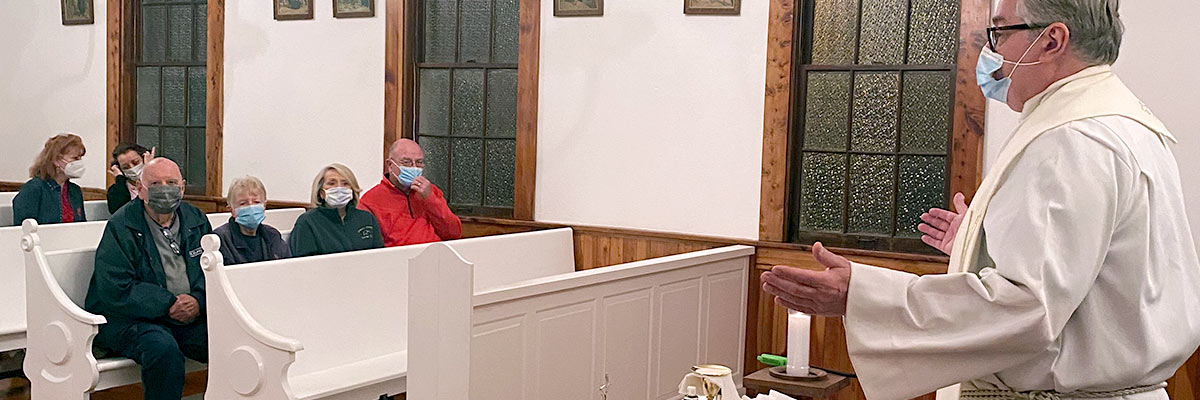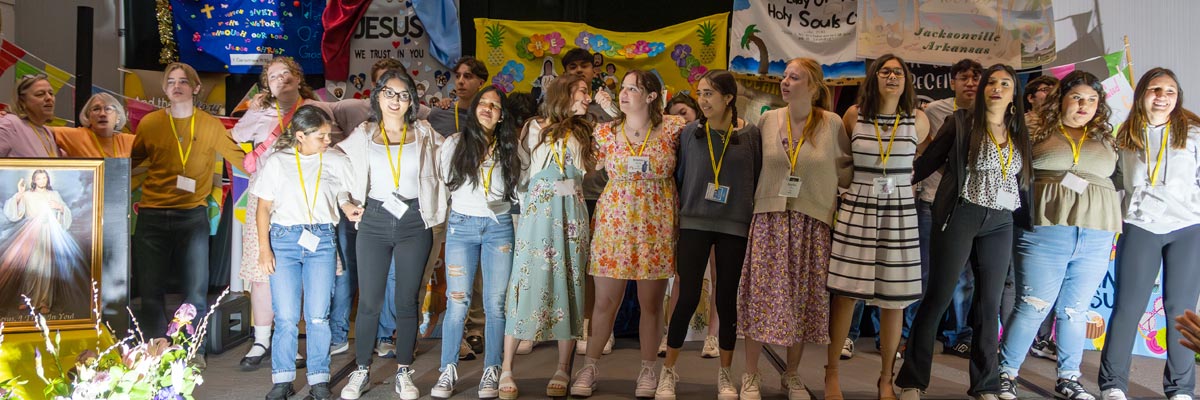Official Website of the
Catholic Diocese of Little Rock
Feast of Our Lady of Guadalupe 2021
Published: December 11, 2021
Bishop Anthony B. Taylor preached the following homily on Saturday, Dec. 11, 2021, as part of an Our Lady of Guadalupe procession from St. Mary Church in North Little Rock to St. Edward Church in Little Rock, where Mass was celebrated at noon, to the Cathedral of St. Andrew, where Mass was celebrated to conclude the event at 4:30 p.m.

Bishop Taylor
The Spanish conquest was very bad for the indigenous people of Mexico. Before 1521 the people certainly had their troubles, but they also had hopes and dreams. Some even looked forward to the return of Quetzalcoatl, who in Aztec mythology was supposed to return to usher in a new era; make Mexico great again, so to speak.
So when Cortes arrived on the coast of Mexico in 1519, this was Moctezuma's greatest fear — that changes were coming that were going to be very bad for him. But Cortez' arrival had the opposite effect on some of the common people, especially the poor and those who belonged to tribes the Aztecs had conquered.
Indeed even among many ordinary Aztecs the status quo was not popular — all the bloody sacrifices and exploitative taxation to support their interminable wars. That is how a small band of brutal Spaniards was able to conquer the greatest empire that existed in the New World at that time.
We have a mother who speaks our language and shares our troubles, a mother who is with us every step of the way, a mother who loves us and gives us hope, a mother who feels what we feel, a mother whose tenderness is more powerful than any adversity we will ever have to face.
As Cortez advanced from the coast, he used every tactic available: he made promises, forged improbable alliances and exploited existing divisions within society. He also fed people a steady stream of lies, and by the time people realized what had happened, it was too late.
Now they had rulers who were hungry for power and hungry for gold — indeed, the Aztecs said that the Spaniards worshipped gold — and were even more exploitative than Moctezuma had been. And worse, the Europeans brought the bubonic plague, which decimated the population.
Mexico saw a 90 percent decline in population during the first century of Spanish rule, due largely to disease but also to forced labor and extreme poverty. These were dark days indeed. Many people lost all hope. They felt abandoned and the only future they could see was bleak indeed.
But they were not alone. Ten years after the Spanish conquest, Jesus intervened. He sent his mother to reassure the very people who are closest to his heart — the poor, the weak and the vulnerable — that they are not alone. We have a mother who speaks our language and shares our troubles, a mother who is with us every step of the way, a mother who loves us and gives us hope, a mother who feels what we feel, a mother whose tenderness is more powerful than any adversity we will ever have to face.
Following 1531 the people of Mexico began to have hope again. Life remained very difficult and the Spaniards continued to exploit, but the people no longer felt so defeated because they now had hope.
The political situation in the United States is very bad for Hispanic immigrants living in the United States and refugees who come here fleeing horrible situations in their countries of origin. Before the elections six years ago we certainly had our troubles — many people were already being deported — but still we had our hopes and dreams. We even call DACA students "dreamers".
And we know all too well that there are people out there who imagine that anti-Hispanic, hate speech could somehow serve to "Make America Great Again" when the exact opposite is true. We have demagogues who, like Cortez, use hate speech to exploit fears and divisions within society — feeding people lies and dividing, destroying families.
And just like 500 years ago, many people are losing hope. They feel abandoned and the only future they can see is bleak indeed. Which is why this celebration of the feast of Our Lady of Guadalupe is so important. We are not alone. Jesus has intervened.
He has sent his mother to reassure us who are closest to his heart — we who are poor, weak and vulnerable — that we are not alone. We have a mother who speaks our language and shares our troubles, a mother who is with us every step of the way, a mother who loves us and gives us hope, a mother who feels what we feel, a mother whose tenderness is more powerful than any adversity we will ever have to face.









